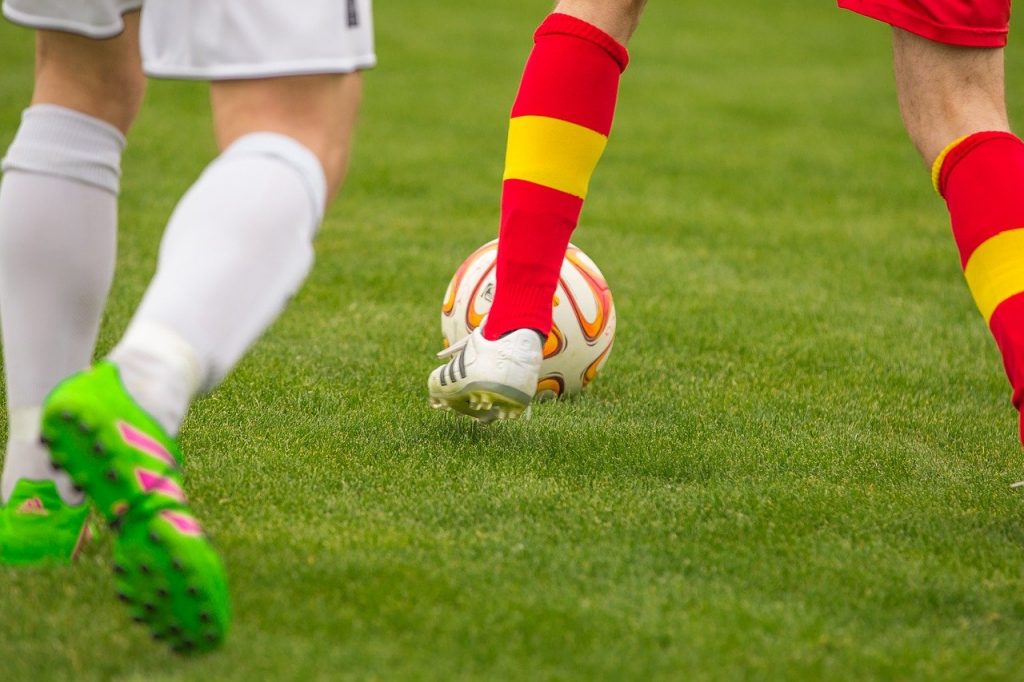There’s no denying that football or ‘soccer’ is one of the world’s most popular sports. Known as soccer in some parts of the planet, football is a great way to have fun with your friends and family and keep your body in shape as it’s a very physical sport.
Another advantage of football is that it’s not a full-on contact sport like rugby, so it’s quite safe to play for both children and adults alike. You’re likely reading this article today because you play football in your spare time – but your footballing skills leave a lot to be desired!
Don’t worry because here are some helpful hints and tips to get you up to speed and playing football properly. Who knows, you could be the next Ronaldo and find out you’ve got a natural talent for football that you never knew you had!
Start With the Fundamentals
It makes sense to begin with the foundation skills needed to play football properly. You must be able to control the ball with your first ‘touch’ because, as you know, razor-sharp decisions are crucial in football. How good are you at controlling the ball as soon as you touch it?
To start, align yourself with the direct path of the ball. Next, decide how you’re going to stop the ball. Afterwards, you should be ready to receive the ball. That all sounds easier in theory than in practice. But, with plenty of practice, you’ll develop your ball-receiving skills.
The aim is to use a part of your body to ‘catch’ the ball, and then you can do something with it afterwards (i.e., kick it towards a teammate or away from the opposition). You can use your foot, leg, stomach or flank to catch the ball.
It’s worth spending a lot of time practicing the first touch, either with friends, family members, football teammates, or alone with a wall!
Work With Your Weak Foot
When you first start playing football, it’s likely you’ll predominately use your left or right foot for shooting and passing the ball. That means you’ve got a ‘weak’ foot that you seldom use for anything. Wouldn’t it be great if you could somehow train your weak foot to be useful?
It’s entirely possible to do that, and it’s a tactic strongly encouraged with most football training. The process of training your weak foot won’t be an easy one, but you’ll soon master it and have an additional weapon at your disposal to use on the pitch.
You can start your training by doing simple kicks and ball control against a wall or with a friend. The idea is to reprogram your brain into controlling the ball in various situations that are likely to happen during a match.
All too often, people who are starting out in football concentrate too much on the advanced aspects of the game rather than focusing on mastering the basics. You must learn how to master the basics of ball control before you can focus on other areas.
Ball control is something you will be doing most of the time whenever you play football. Knowing how to react will mean you can increase your side’s chances of scoring goals and going on to win the match.
Ball Control in Tight Spaces
There will inevitably be times where you find yourself in situations that mean you must do something with the ball in a tight space. What exactly is meant by a ‘tight space,’ you might be asking yourself?
Examples include being surrounded by players from the opposing team, receiving a ball by the edge of the pitch, and receiving the ball close to the opposing goalposts. As you can imagine, ball control in tight spaces adds a lot of pressure on your shoulders.
However, the good news is you can train yourself to deal with such situations effectively. So, how can you improve your ball control in those tight spaces? The answer is more straightforward than you might think!
You can start by erecting some small flags in the ground or using a set of cones. Next, practice weaving the ball around those flags or cones without touching them. With plenty of practice, you’ll soon master ball control in tight spaces.
Final thoughts
The above hints and tips might seem like basic information, but they are fundamental to the success of any person playing football. Most of your time spent playing football will involve receiving the ball, controlling it, and either passing or shooting it afterwards.
Good luck!







 Sneak Peek at Sugar Factory’s Valentine’s
Sneak Peek at Sugar Factory’s Valentine’s